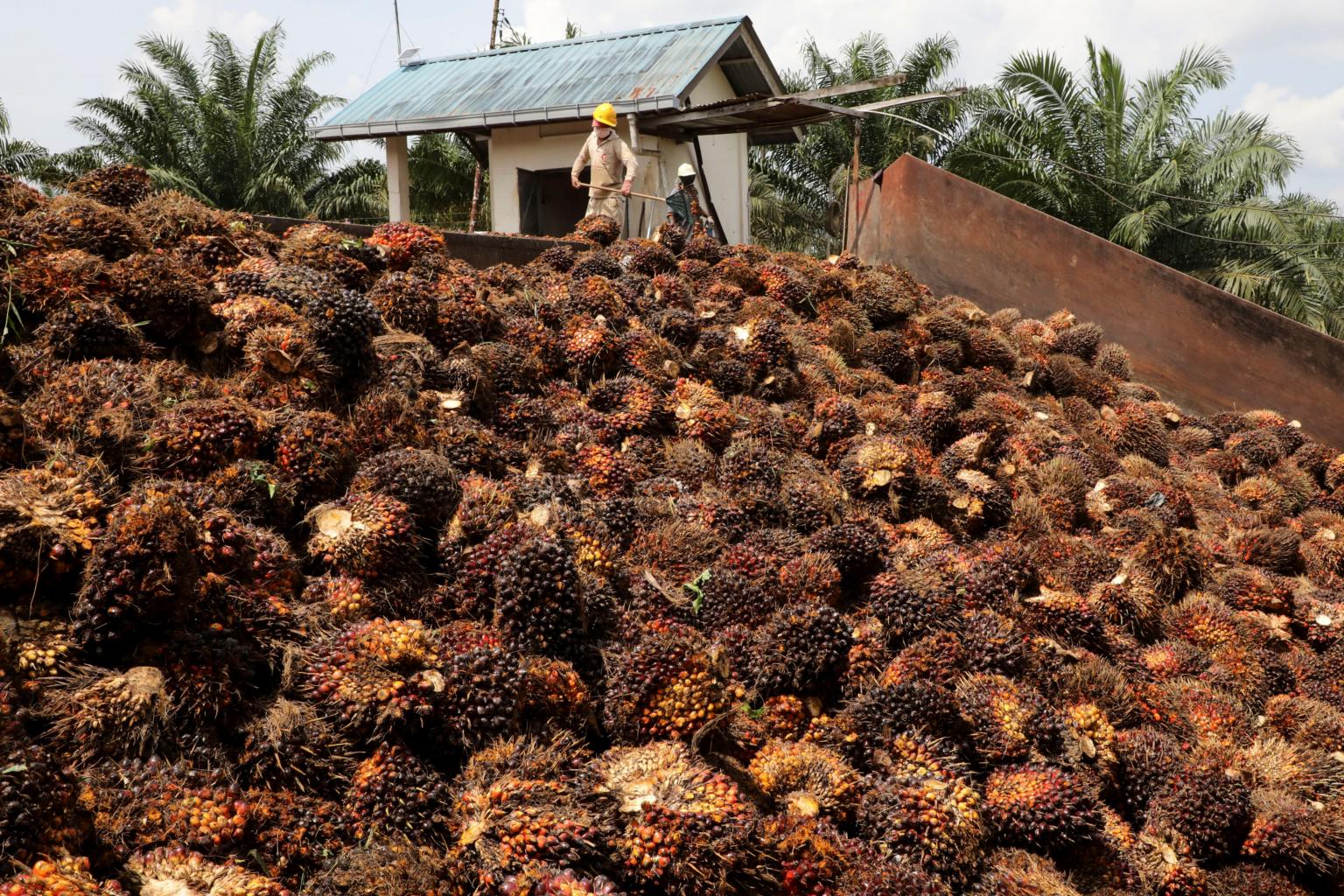Malaysia may cut palm oil export tax amid global supply crisis
Sign up now: Get insights on the biggest stories in Malaysia

Malaysia could cut the tax to 4 per cent or 6 per cent from the current 8 per cent.
PHOTO: REUTERS
Follow topic:
KUALA LUMPUR (REUTERS) - Malaysia’s commodities ministry has proposed cutting an export tax on palm oil by as much as half to help fill a global edible oil shortage and grow the market share of the world’s second-largest palm oil producer.
Plantation Industries and Commodities Minister Zuraida Kamaruddin said in an interview on Tuesday (May 10) her ministry has already proposed the cut to the Finance Ministry, which has set up a committee to look into the details.
Malaysia, could cut the tax, likely a temporary measure, to 4 per cent-6 per cent from the current 8 per cent, Datuk Zuraida said.
A decision could be made as early as June, she said.
Malaysia is looking to boost its share of the edible oil market after Russia's invasion of Ukraine disrupted sunflower oil shipments and Indonesia's move to ban palm oil exports further tightened global supplies.
The proposal also asked the Finance Ministry to expedite the tax cut for state-linked palm oil producer FGV Holdings - Malaysia’s largest – and companies with overseas oleochemical production, she said.
Malaysia will as well slow the implementation of its B30 biodiesel mandate, which requires a portion of the nation’s biodiesel to be mixed with 30 per cent of palm oil, to prioritise supply to global and domestic food industries, she said.
"We have to prioritise to give food to the world first," Madam Zuraida said.
Palm oil - used in everything from cakes to detergent - accounts for nearly 60 per cent of global vegetable oil shipments and the absence of top producer Indonesia has roiled the market.
The benchmark palm oil contract fell as much as 2.3 per cent in the morning session on Tuesday, paring some losses after the Reuters report on a possible cut to the export tax.
Madam Zuraida told Reuters importing countries have asked Malaysia to reduce its export taxes.
"They feel it is too high because of the high costs across the supply chain, because of the price of edible oil," she said.
Crude palm oil futures have surged about 35 per cent so far this year to all-time highs, further worsening global food inflation.
The Food and Agriculture Organisation has warned that food prices, which hit a record high in March, could rise by up to 20 per cent as a result of the Russia-Ukraine war, raising the risk of increased malnutrition.
Madam Zuraida said buyers India, Iran and Bangladesh are proposing to barter agriculture products like rice, wheat, fruits and potatoes for Malaysian palm oil.
Malaysia’s production has been strained for more than two years due to a severe labour crunch following coronavirus border curbs that halted the entry of migrant workers.
With travel curbs now being eased, foreign workers will start arriving in mid-May, Madam Zuraida told Reuters.
Malaysia’s production and exports of palm oil are expected to rise 30 per cent by the end of this year, she said in a separate statement on Tuesday.

